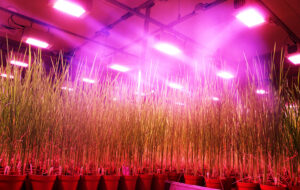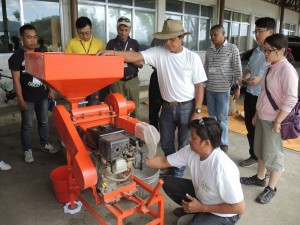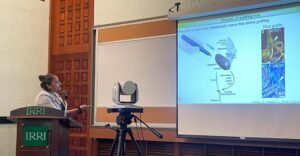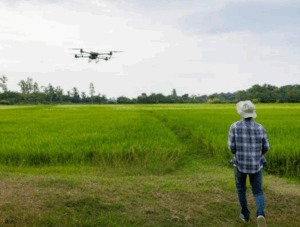Nigeria’s Taraba State will host the wet season rice planting program designed to create employment and entrepreneurial opportunities for 1,000 women and youths in the pilot phase.
The sustainable rice transformational program aims to link farmers to new technologies and high yield seedlings to enable them to produce high quality and quantity of paddy rice for processing during the wet season farming.
Read the full story at This Day Live
More on improving the rice sector in Africa:
Inclusive, Sustainable Rice System to Improve East Africa’s Food and Income Security
Major players from sub-Saharan Africa and Asia will discuss key topics surrounding the rice value chain in East Africa in a bid to increase domestic rice production to fulfill the increasing demand.
Africa has become a major consumer of rice with an estimated annual import cost of over 5 billion USD. Between 2010 and 2035, the continent will need an additional 30 million tons to meet this demand (Seck et al., 2012). According to Kilimo Trust, “over 1.5 million farming households in the East African Community depend on rice for food and income security with an average of US$ 550/household/year from rice production enterprises.”
East African countries champion integrated rice sector development in the region to curb escalating imports
As rice becomes a strategic commodity in Africa, many countries in East Africa have embarked on various programs that, along with continental initiatives, aim to chart a course of action for moving the regional rice sector forward.
At the recently concluded East Africa Rice Conference (EARC) 2021, key players from Africa’s agri-food sector listed increased availability and access to quality inputs via harmonized regional policies and regulations, public-private partnerships support in value chain upgrading and regional trade in local rice, and strengthened regional and national platforms to promote policy coordination and investment as top regional priorities to champion an integrated rice sector development in the region. These, together with other coordinated actions, will contribute to accelerated agri-food sector transformation to address challenges facing food and nutrition security in the region.
Gender transformative change critical for nurturing an equitable rice sector in Africa
The extent of women’s participation and the roles they play in agri-food systems may vary across countries and regions, but the reality remains the same: women are central to the sustainable development of agri-food systems. However, social, political and market institutions which govern food systems portray elements of gender bias at all levels, holding back women in vicious cycles of time and income poverty.
Ranjitha Puskur, Research Leader for Gender and Livelihoods, International Rice Research Institute presented “Gender Equality and Sustainable Rice Agri-food Systems Transformation in Africa: Nurturing Synergies” at the East Africa Rice Conference 2021 (EARC2021), where key players gathered for important discussions on strengthening rice-based agri-food systems in the region.







